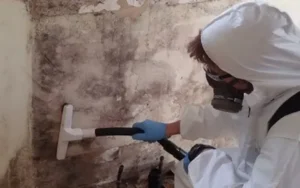Relationships may be fulfilling as well as difficult at times. Whether you’re managing the complexities of your family, your love relationship, or your close friendship, difficulties are unavoidable. To address more serious problems, there are certain indicators that it might be time to seek therapy for relationship issues. Here are some important indicators to take into consideration if you’re wondering if therapy could be beneficial for your relationship.
1. Frequent and Intense Arguments
While disagreements are unavoidable in any relationship, it may indicate a deeper issue if you find yourself fighting all the time about the same topics. Arguments that are frequent and severe enough to leave you exhausted or offended may be a sign that your communication style or unsolved problems require expert help.
2. Persistent Feelings of Resentment or Anger
Dissatisfaction or anger that is held onto can be harmful to a relationship. Therapy may help in addressing and promoting healing if you or your partner discover that you are carrying around unfavorable emotions that appear to continue and interfere with your interactions.
3. Lack of Communication
A strong relationship is built on effective communication. Therapy can offer techniques for enhancing communication and promoting understanding if you find it difficult to voice your needs, thoughts, or problems without creating conflict or if you feel ignored.
4. Emotional Distance or Disconnection
It can be uncomfortable to feel emotionally detached or disconnected. Therapy can provide tools to help you and your partner reconnect and improve your bond if you feel like you two are growing emotionally distant from each other.
5. Repetitive Patterns of Dysfunction
Relationships may revert to ineffective conflict resolution, avoidance, or codependency as patterns of dysfunction. It can be difficult to recognize these patterns and to understand where they came from, but a therapist may help you in understanding and changing these dynamics.
6. Difficulty Navigating Major Life Changes
Any significant life changes, such as moving, changing careers, or having children, may stress a relationship. Therapy can assist you both in managing these transitions more skillfully if you’re finding it difficult to adjust to these changes and it’s having an affect on your relationship.
7. Trust Issues
The basis of any relationship is trust. Therapy can help resolve trust difficulties if they are common, whether they are the result of prior lying, insecurities, or misunderstandings. The goal of therapy is to work towards restoring a foundation of trust.
8. Feeling Stuck or Hopeless
Counseling can offer new insight and practical solutions if you and your partner are caught in an endless cycle of issues and don’t know how to break free. If you’re losing hope for the future of your relationship, it may be time to seek professional help.
9. Signs of Emotional or Psychological Abuse
There are several ways that emotional or psychological abuse manifests itself, such as persistent criticism, manipulation, or gaslighting. Therapy is essential if you or your spouse are engaging in these behaviors because it provides a secure and encouraging setting for discussing and resolving these problems.
10. Desire for Personal Growth
Seeking treatment might occasionally be driven by a desire for betterment or personal growth. Therapy can provide insightful information and helpful solutions if you and your partner want to understand one another better and strengthen your relationship.
When to Seek Help
Improving your relationship starts with recognising these symptoms. Seeing a therapist might be a proactive and beneficial move if you observe these symptoms in your relationship. A qualified therapist can assist you and your partner with healthier communication habits.
Recall that going to therapy is a commitment to bettering your relationship and overall health rather than a sign of failure. Therapy can provide you the skills and encouragement you need to build a happier, healthier relationship, regardless of whether you’re addressing particular problems or just want to deepen your bond.




